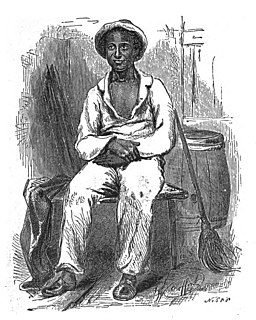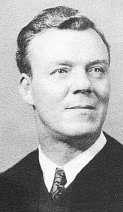A Quote by Phillips Brooks
There are no times in life when opportunity, the chance to be and do, gathers so richly about the soul as when it has to suffer. Then everything depends on whether the man turns to the lower or the higher helps. If he resorts to mere expedients and tricks the opportunity is lost. He comes out harder, poorer, smaller for his pain. But, if he turns to God, the hour of suffering is the turning hour of his life.
Related Quotes
St. Augustine and St. Thomas define mortal sin to be a turning away from God: that is, the turning of one's back upon God, leaving the Creator for the sake of the creature. What punishment would that subject deserve who, while his king was giving him a command, contemptuously turned his back upon him to go and transgress his orders? This is what the sinner does; and this is punished in hell with the pain of loss, that is, the loss of God, a punishment richly deserved by him who in this life turns his back upon his sovereign good.
When a man finds that it is his destiny to suffer, he will have to accept his suffering as his task. . . . He will have to acknowledge the fact that even in suffering he is unique and alone in the universe. No one can relieve him of his suffering or suffer in his place. His unique opportunity lies in the way in which he bears his burden.
When a man finds that it is his destiny to suffer, he will have to accept his suffering as his task; his single and unique task. He will have to acknowledge the fact that even in suffering he is unique and alone in the universe. No one can relieve him of his suffering or suffer in his place. His unique opportunity lies in the way in which he bears his burden.
At such times, the heart of man turns instictively towards his Maker. In prosperity, and whenever there is nothing to injure or make him afraid, he remembers Him not, and is ready to defy Him; but place him in the midst of dangers, cut him off from human aid, let the grave open before him, then it is, in the time of his tribulation, that the scoffer and unbelieving man turns to God for help, feeling there is no other hope, or refuge, or safety, save in his protecting arm.
I rely on some words that actually my husband said to me. He jokes about saying, "You know it's only darkest before it's totally black!" Even in my darkest hour - and my darkest hour was probably when I lost both my parents - I look to him and I see what he has endured, what he has overcome, what he is doing with his life, and just how he's lived his life.
It is a common error, and the greater and more mischievous for being so common, to believe that repentance best becomes and most concerns dying men. Indeed, what is necessary every hour of our life is necessary in the hour of death too, and as long as one lives he will have need of repentance, and therefore it is necessary in the hour of death too; but he who hath constantly exercised himself in it in his health and vigor, will do it with less pain in his sickness and weakness; and he who hath practiced it all his life, will do it with more ease and less perplexity in the hour of his death.
Since a rational man's ambition is unlimited, since his pursuit and achievement of values is a life-long process — and the higher the values, the harder the struggle — he needs a moment, an hour or some period of time in which he can experience the sense of his completed task, the sense of living in a universe where his values have been successfully achieved.
The faithful man perceives nothing less than opportunity in difficulties. Flowing through his spine, faith and courage work together: Such a man does not fear losing his life, thus he will risk losing it at times in order to empower it. By this he actually values his life more than the man who fears losing his life. It is much like leaping from a window in order to avoid a fire yet in that most crucial moment knowing that God will appear to catch you.
If and when a horror turns up you will then be given Grace to help you. I don't think one is usually given it in advance. "Give us our daily bread" (not an annuity for life) applies to spiritual gifts too; the little daily support for the daily trial. Life has to be taken day by day and hour by hour.
That his prayer was nothing else but a sense of the presence of GOD, his soul being at that time insensible to everything but Divine love: and that when the appointed times of prayer were past, he found no difference, because he still continued with GOD, praising and blessing Him with all his might, so that he passed his life in continual joy; yet hoped that GOD would give him somewhat to suffer, when he should grow stronger.
That hour in the life of a man when first the help of humanity fails him, and he learns that in his obscurity and indigence humanity holds him a dog and no man: that hour is a hard one, but not the hardest. There is still another hour which follows, when he learns that in his infinite comparative minuteness and abjectness, the gods do likewise despise him, and own him not of their clan.
A man walks on through life - with the external call ringing in his ears but with no response stirring in his heart, and then suddenly, without any warning, the Spirit taps him on the shoulder. What happens? He turns 'round. The word 'repentance' means 'turning 'round.' He repents and believes and is saved.
And then he drew a dial from his poke, And looking with lack-lustre eye, Says very wisely, 'It is ten o'clock: Thus we may see', Quoth he, 'how the world wags: 'Tis but an hour ago since it was nine, And after one hour more 'twill be eleven; And so from hour to hour we ripe and ripe, And then from hour to hour we rot and rot.





































